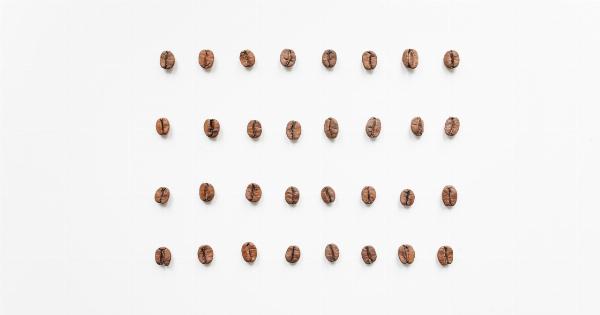If you have not been taking good care of your liver, it may have accumulated toxins and become sluggish, leading to a variety of health problems.
Fortunately, your liver can bounce back and start functioning optimally again if you give it the right support. Here are some useful tips and tricks to rejuvenate your liver after a long break:.
1. Cut Down on Alcohol
One of the most common causes of liver damage is excessive alcohol consumption. Alcohol is processed by the liver, and when you drink too much, the liver has to work overtime to metabolize it.
Over time, this can lead to liver inflammation, scarring, and impaired function. Therefore, if you want to rejuvenate your liver, the first thing you need to do is cut down on alcohol or stop drinking altogether, depending on the severity of your liver damage.
2. Adopt a Liver-Friendly Diet
Your liver needs a variety of nutrients to function well, such as vitamins, minerals, antioxidants, and fiber. Therefore, it is important to adopt a diet that is rich in whole foods, especially fruits, vegetables, legumes, whole grains, nuts, and seeds.
These foods provide your liver with the building blocks and energy it needs to repair itself and detoxify your body. At the same time, you should avoid or limit foods that are high in fat, sugar, salt, and processed ingredients, as they can burden your liver and contribute to inflammation.
3. Stay Hydrated
Drinking enough water is essential for liver health, as it helps flush out toxins and waste products from your body. The liver needs water to produce bile, which is a fluid that aids in the digestion and absorption of fats and fat-soluble vitamins.
Therefore, you should aim to drink at least eight glasses of water per day, or more if you are physically active or in a hot climate.
4. Exercise Regularly
Physical activity is not only good for your heart and muscles, but also for your liver. When you exercise, you increase blood flow and oxygen delivery to your organs, including the liver.
This can help reduce inflammation, improve insulin sensitivity, and enhance liver function. Moreover, regular exercise can help you maintain a healthy weight, which is important for liver health, as obesity is a risk factor for liver disease.
5. Get Enough Sleep
Getting enough sleep is crucial for your overall health, but also for liver health. During sleep, your body repairs and regenerates cells, including liver cells.
Therefore, if you do not get enough sleep or have poor quality sleep, your liver may not be able to function at its best. Aim to get at least seven to eight hours of sleep per night, and establish a regular sleep routine that allows you to unwind and relax before bedtime.
6. Reduce Stress
Stress can be harmful to your liver, as it triggers the release of stress hormones that can increase inflammation and oxidative stress.
Therefore, it is important to find ways to reduce stress in your life, such as through meditation, deep breathing, yoga, or other relaxation techniques. You may also benefit from talking to a therapist or joining a support group if you are dealing with chronic stress or anxiety.
7. Take Liver-Supporting Supplements
In addition to a healthy diet and lifestyle, you may consider taking some supplements that can help support liver function and detoxification.
Some of the most common liver-supporting supplements include milk thistle, dandelion root, turmeric, N-acetyl cysteine (NAC), alpha-lipoic acid (ALA), and glutathione. However, you should talk to your doctor or a qualified healthcare provider before taking any supplements, as they may interact with medications or have side effects.
8. Avoid Toxins
Your liver has to deal with a lot of toxins on a daily basis, from environmental pollutants to household chemicals to medications. Therefore, you should try to avoid or minimize your exposure to toxins as much as possible.
For example, you can use natural cleaning products, avoid smoking or inhaling secondhand smoke, wear protective gear when working with chemicals or pesticides, and use medications only as prescribed and under medical supervision.
9. Monitor Your Liver Health
If you have a history of liver disease or suspect that your liver may be compromised, it is important to monitor your liver health regularly.
This may involve getting blood tests, ultrasounds, or other imaging studies that can detect signs of liver damage or dysfunction. By catching liver problems early, you can take steps to prevent further damage and improve your liver function.
10. Seek Professional Help
If you have tried the above tips and tricks and still experience liver problems, or if you have advanced liver disease, you may need to seek professional help from a liver specialist or hepatologist.
These doctors can offer specialized tests, medications, procedures, or surgery that can address specific liver conditions and improve your quality of life.
Conclusion
Your liver is a vital organ that plays many roles in keeping you healthy and energized. If you have neglected your liver in the past, you can take steps to rejuvenate it and restore its optimal function.
By adopting a healthy diet and lifestyle, staying hydrated, exercising regularly, getting enough sleep, reducing stress, taking liver-supporting supplements, avoiding toxins, monitoring your liver health, and seeking professional help if needed, you can give your liver the support it needs to thrive.































